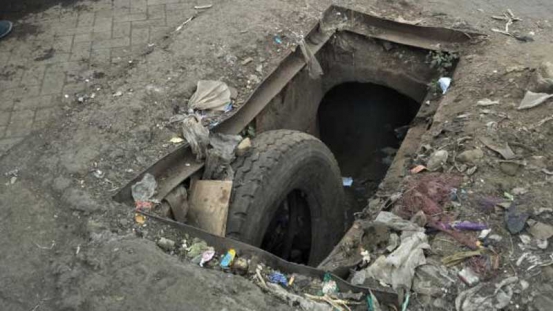×
The Standard e-Paper
Stay Informed, Even Offline

On September 10, 2015, Nicholas Kubuni broke his leg after falling into an open manhole at the Country Bus Station, popularly known as Machakos Bus Station.
Mr Kubuni parted with more than Sh200,000 in medical bills after sustaining several fractures on his right leg, and walked on crutches for more than five months during which the sole-breadwinner was turned into a dependent.